


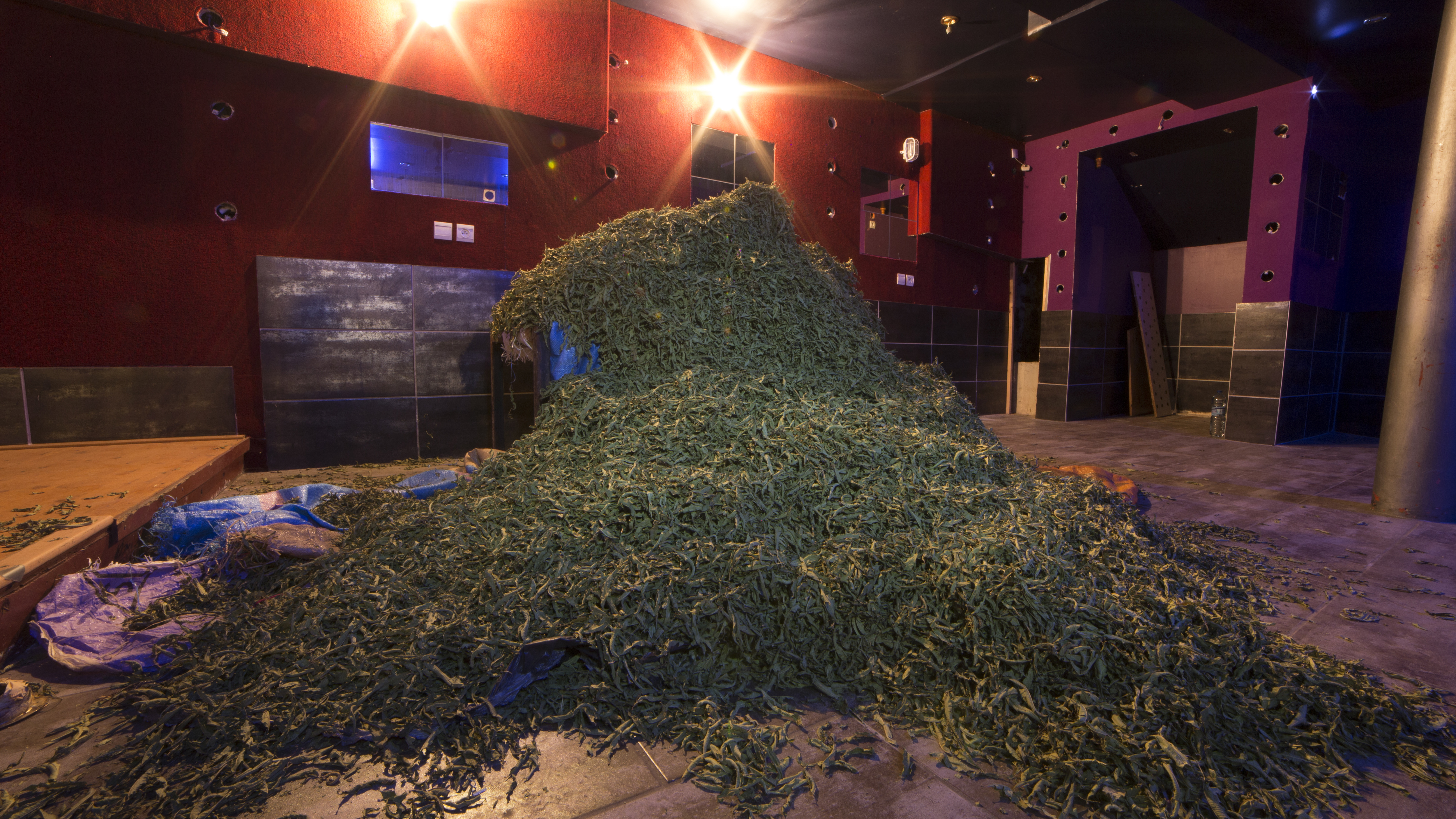

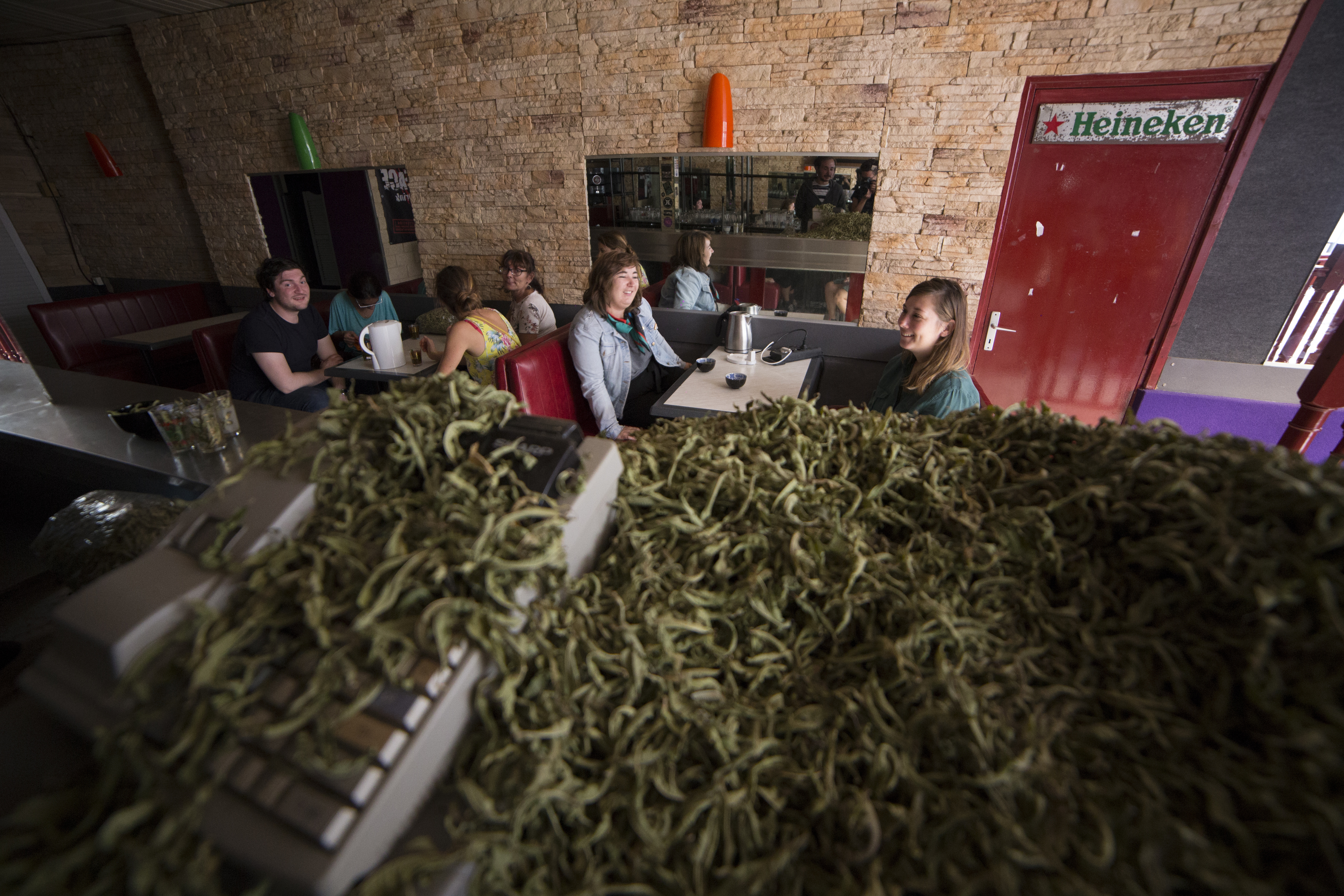
Ali Baba Express: Episode 1
Installation
Part of ‘Hotel Cosmos’ ︎
Clermont Ferrand
2018



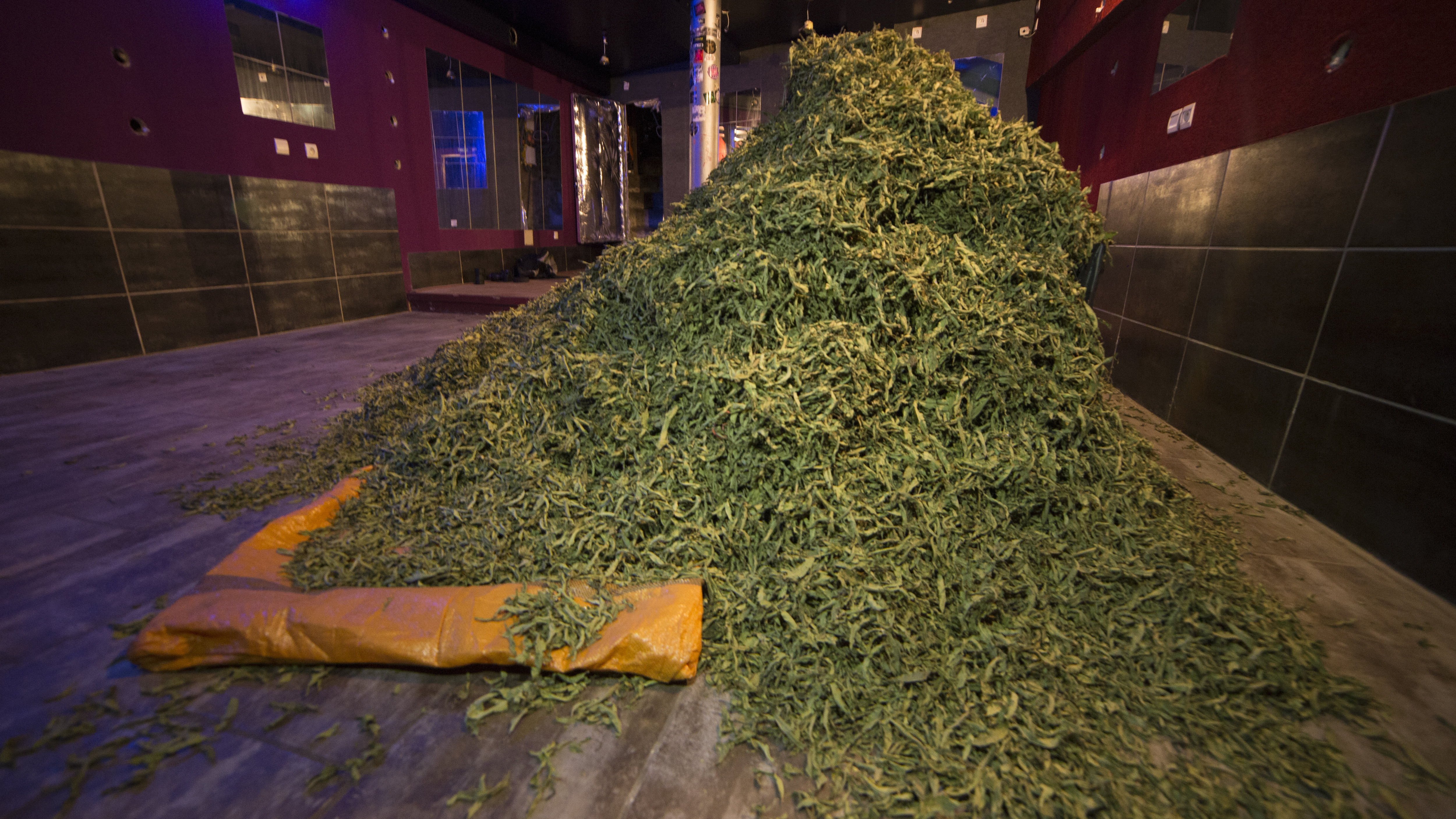




Ali Baba Express: Episode 1
Installation with verbena tea, disposable gloves, metal dispensers, plastic bags and cardboard boxes used during transportation courtesy of the artist, this project has been made in collaboration with Abdeslam Amdiaze.

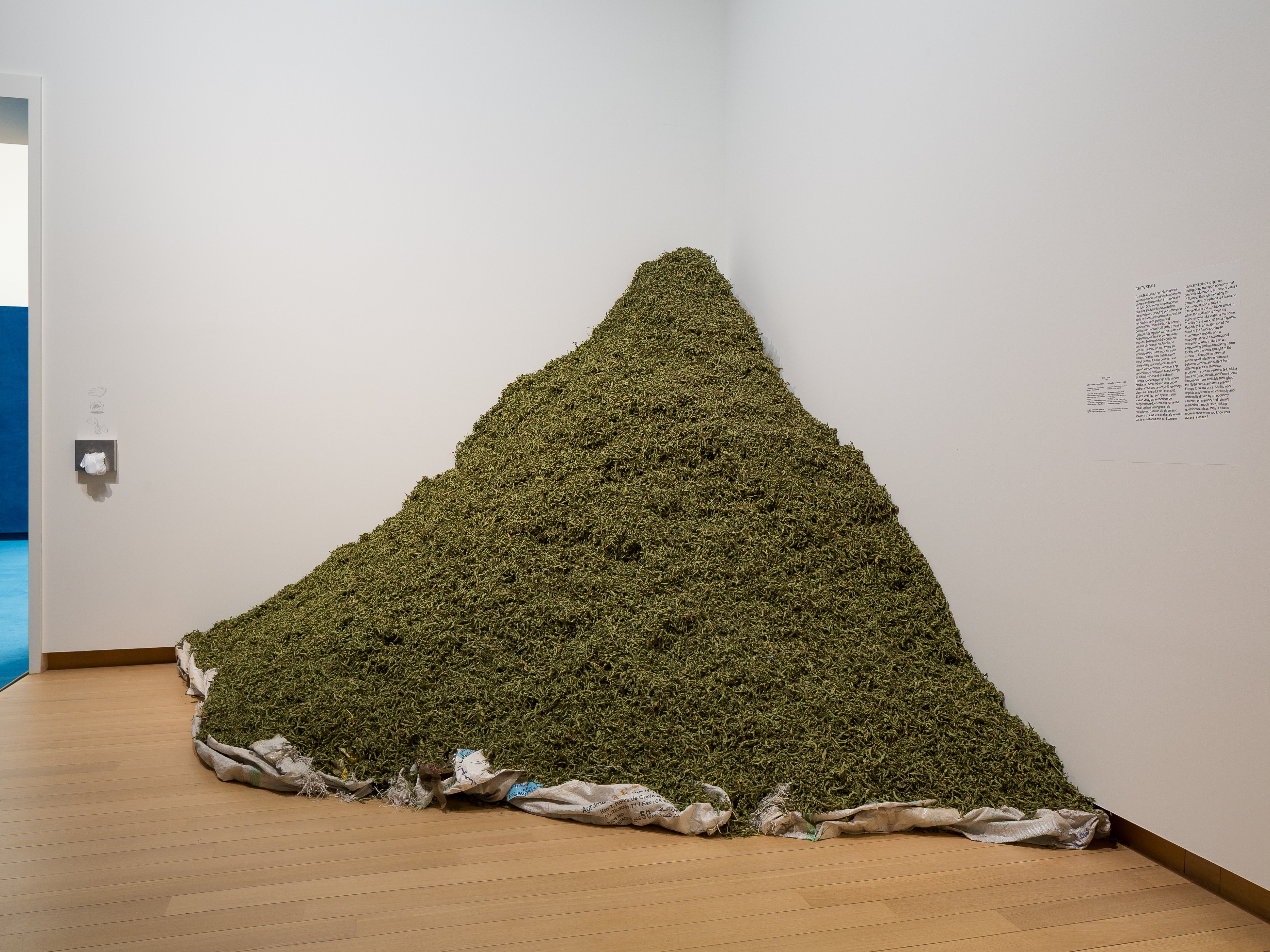




Ali Baba Express:
Episode 2
Stedelijk Museum - Amsterdam
2021
Ghita Skali brings to light an underground transport economy that connects Morocco to numerous places in Europe. Through mediating the transportation of verbena tea leaves to the museum, she creates an intervention in the exhibition space in which the audience is given the opportunity to take verbena tea home. The title of the work, Ali Baba Express: Episode 2, is an adaptation of the name of the famous Chinese e-commerce website and a reappropriation of a stereotypical reference to Arab culture as an empowering and emancipating name for the way the tea is brought to the museum. Through an informal exchange of telephone numbers between carriers and sellers from different places in Morocco, products— such as verbena tea, Aicha jam, khlii (dried meat), and Pom's (local lemonade)—are available throughout the Netherlands and other places in Europe for a low price. Skali's work depicts a system in which supply and demand is driven by an economy centered on memory and reliving memories through taste, asking questions such as: Why is a taste more intense when you know your access is limited?





Ali Baba Express: Episode 2
Installation with verbena tea, disposable gloves, metal dispensers, plastic bags and cardboard boxes used during transportation courtesy of the artist, this project has been made in collaboration with Abdeslam Amdiaze.



︎
You may take the verbena tea following the instructions.
Illustrations instructions by Haitham Haddad – Studio MNJNK




Ali Baba Express:
Episode 3
Installation
Part of ‘Antibodies’︎
Palais de Tokyo - Paris
2021
“Heaps of verbena leaves are piled up in various places throughout the Palais de Tokyo. Fragrant and invasive, the verbena acts like a virus that spreads throughout the building. Ghita Skali imported this stock of verbena – some 200kg – through a makeshift transMediterranean network between Morocco and France that she humorously refers to as Ali Baba Express . Word of mouth, neighborhood connections and shopkeepers’ know-how enable the Moroccan diaspora in France to source foodstuffs from their home country at the lowest possible prices. With this installation, Ghita Skali extends this network into the exhibition space to include the visitors themselves, putting on display an informal economy of olfactory memory.
Ghita Skali’s artistic practice is animated less by a material production than by processes of circulation: the circulation of knowledge, of rumors', of fables and of symbols. This new instalment of the series Ali Baba Express is conceived as an underground infiltration, and echoes the immaterial nature of the work by Florence Jung presented in the exhibition.
As part of the work, Ghita Skali has installed several “vending machines” containing pairs of gloves. Shaped like rabbit’s ears, they allow visitors to scoop up the verbena leaves. These gloves are in fact the kind used in gynecology or proctology for examining the body’s orifices. Turned inside out, they become sachets ready to package the loose leaves. In this, the gloves blur the limits between interior and exterior, container and content, giving further form to the exhibition’s overarching metaphor that links national borders and the boundaries of the body.”






Ali Baba Express: Episode 3
Installation with verbena tea, disposable gloves, metal dispensers, plastic bags and cardboard boxes used during transportation courtesy of the artist, this project has been made in collaboration with Abdeslam Amdiaze.
︎
You may take the verbena tea following the instructions.
Illustrations instructions by Haitham Haddad – Studio MNJNK
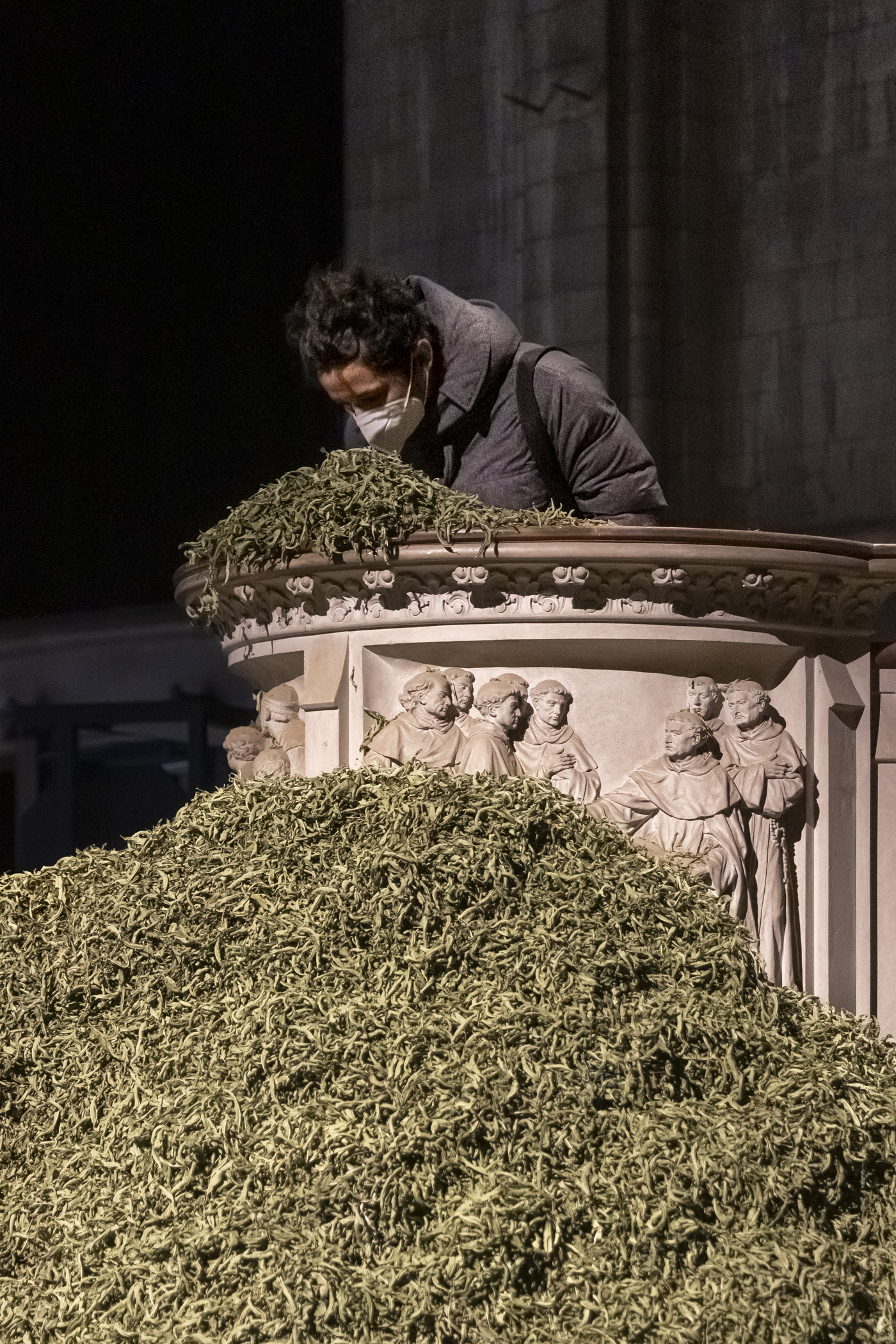
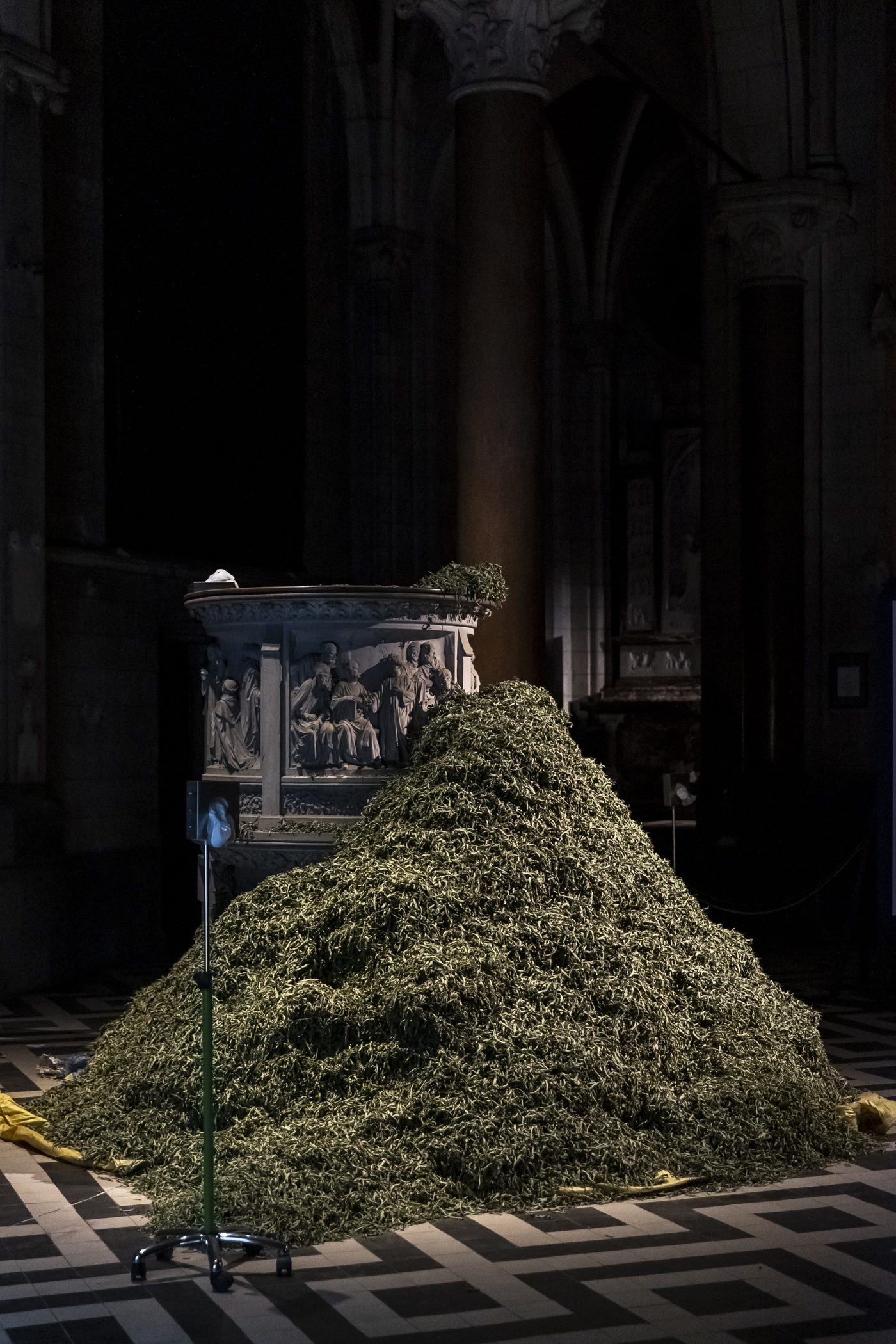
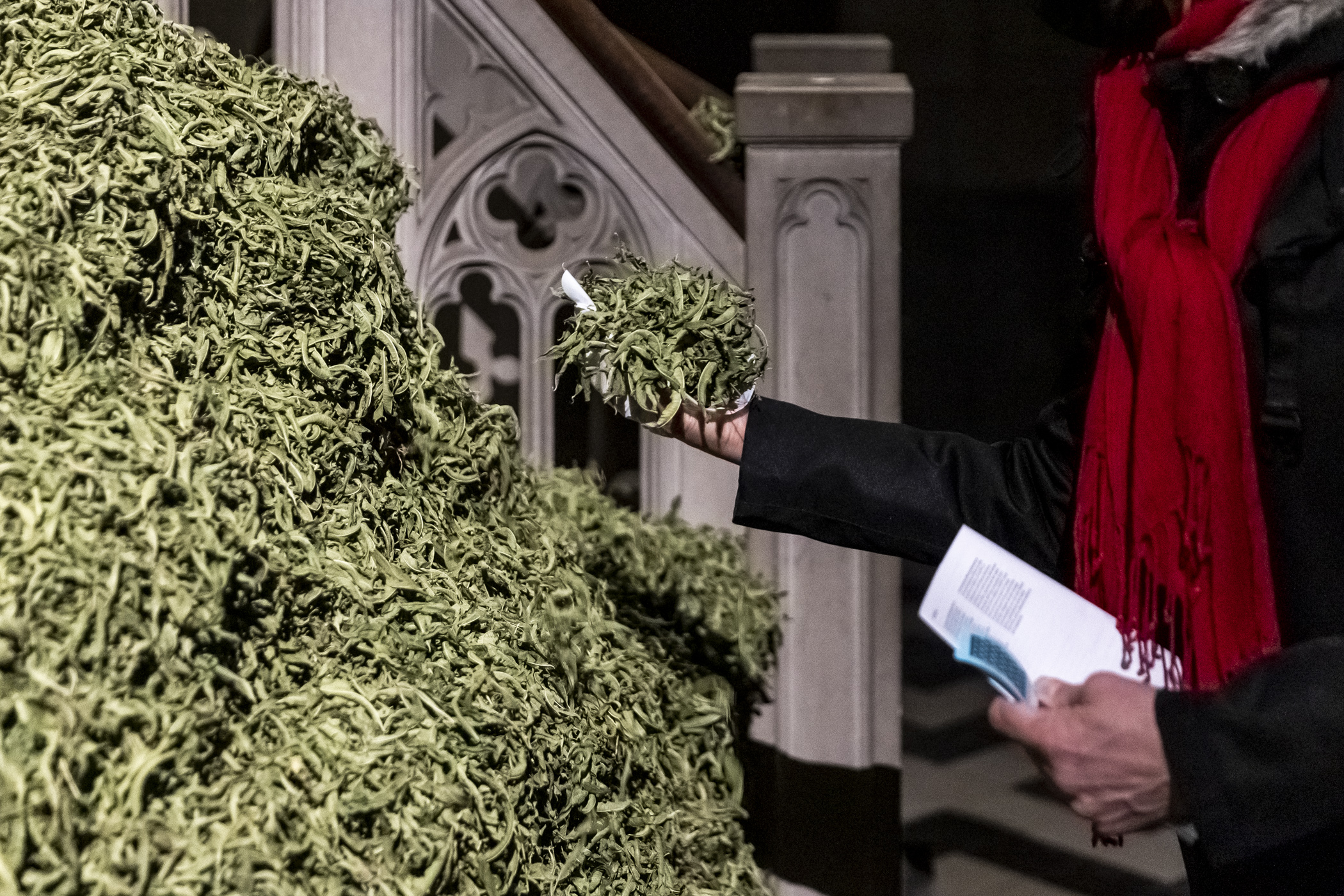



Ali Baba Express:
Episode 4
Installation
Part of ‘Made in X’ ︎
Antwerp
2022
“Ghita Skali brings to light an underground transport economy that connects Morocco to numerous places in Europe. Through mediating the transportation of three hundred kilos of verbena tea leaves to the Kunsthal Extra City, she creates an intervention in which the audience is given the opportunity to take verbena tea home. The title of the work, Ali Baba Express: Episode 4, is an adaptation of the name of the famous Chinese e-commerce website and a reappropriation of a stereotypical reference to Arab culture as an empowering and emancipating name for the way the tea is brought to the museum. Through conversations with Moroccan communities in Antwerp and an informal exchange of telephone numbers between carriers and sellers from different places in Morocco, products— such as verbena tea, Aicha jam, khlii (dried meat), and Pom's (local lemonade)—are available throughout Europe for a low price. Skali's work depicts a system in which supply and demand is driven by an economy centered on memory and reliving memories through taste, asking questions such as: Why is a taste more intense when you know your access is limited?
Ali Baba Express: Episode 4 is an example of how Ghita Skali’s (MA, 1992) practice brings in realities that exist outside the arts and empowers other realities through her work, consisting of installations, interventions, performances, and video. Her projects have recently been shown at été 78 (Brussels), 18 (Marrakech), Stedelijk Museum (Amsterdam) and Palais de Tokyo (Paris). She lives and works in Amsterdam.
Ali Baba Express: Episode 4 is an example of how Ghita Skali’s (MA, 1992) practice brings in realities that exist outside the arts and empowers other realities through her work, consisting of installations, interventions, performances, and video. Her projects have recently been shown at été 78 (Brussels), 18 (Marrakech), Stedelijk Museum (Amsterdam) and Palais de Tokyo (Paris). She lives and works in Amsterdam.
Text by Joachim Naudts






Ali Baba Express: Episode 4
Installation with verbena tea, disposable gloves, metal dispensers, plastic bags and cardboard boxes used during transportation courtesy of the artist, this project has been made in collaboration with Abdeslam Amdiaze.
︎
You may take the verbena tea following the instructions.
Illustrations instructions by Haitham Haddad – Studio MNJNK

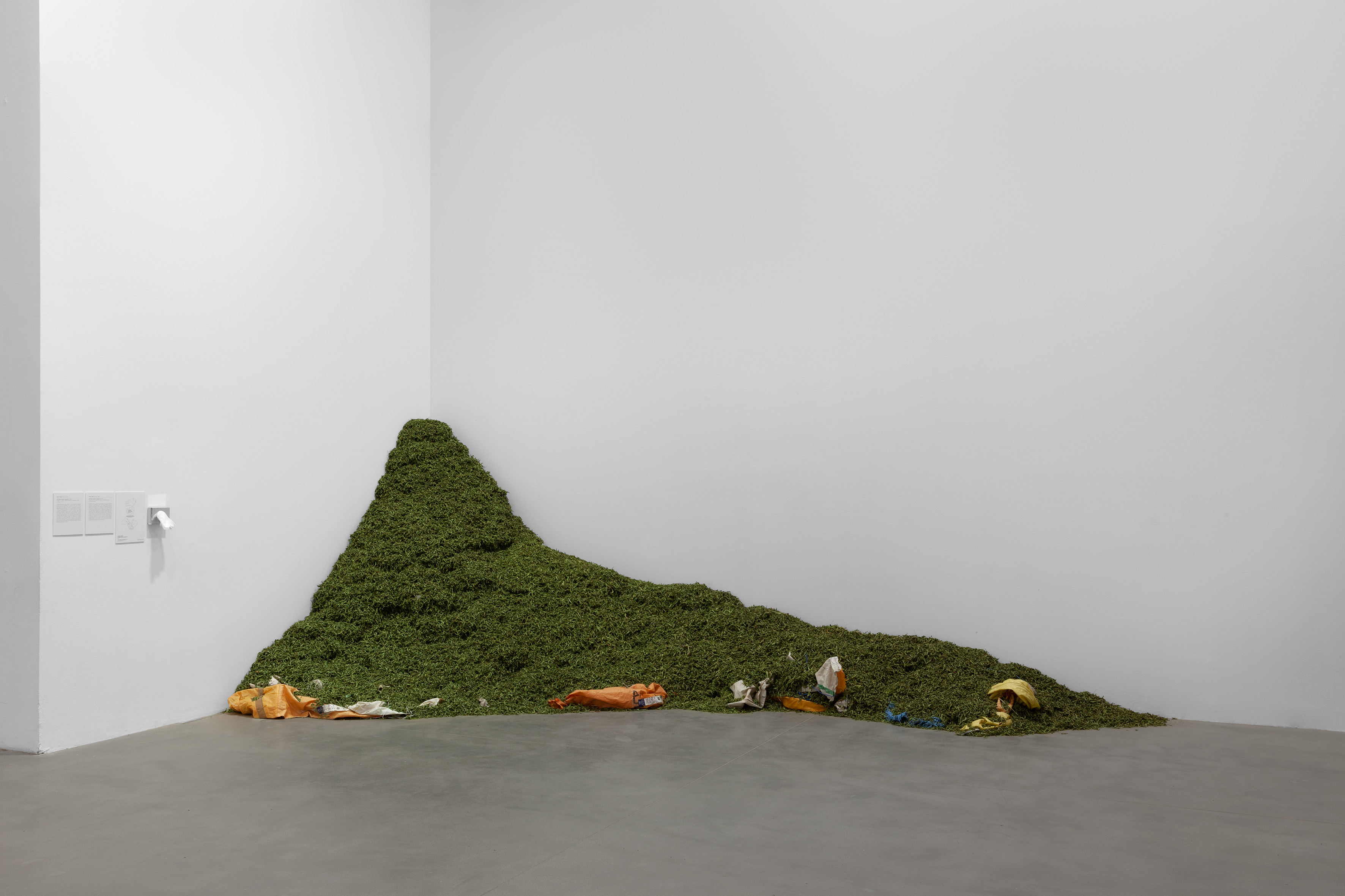

Ali Baba Express:
Episode 5
Installation
Part of ‘Something in the air’︎
Turin - Fondazione Sandretto Re Rebaudengo
2022



Ali Baba Express: Episode 5
Installation with verbena tea, disposable gloves, metal dispensers, plastic bags and cardboard boxes used during transportation courtesy of the artist, this project has been made in collaboration with Abdeslam Amdiaze.
︎
You may take the verbena tea following the instructions.
Illustrations instructions by Haitham Haddad – Studio MNJNK
Press Leakage
︎ 2023: Ghita Skali et le trou du pouvoir - by Mariam El Ajraoui - Terss
︎ 2022: Aidsburgers, medical horoscopes and holes in the floor - by Suzanne Wallinga - Metropolis M
︎ 2022: One raw material per artist - by Jasper Delva - Metropolis M
︎ 2021: Antibodies and Oppositions - by Johanna Sluiter - Hyperallergic
︎ 2020: Import Expo - by Roxana Azimi - Le Monde Magazine
︎ Anticorps Ep3 - Les Inrockuptibles
︎ Trans-histories and Translocal Exchange - Stedelijk museum
︎ 2022: Aidsburgers, medical horoscopes and holes in the floor - by Suzanne Wallinga - Metropolis M
︎ 2022: One raw material per artist - by Jasper Delva - Metropolis M
︎ 2021: Antibodies and Oppositions - by Johanna Sluiter - Hyperallergic
︎ 2020: Import Expo - by Roxana Azimi - Le Monde Magazine
︎ Anticorps Ep3 - Les Inrockuptibles
︎ Trans-histories and Translocal Exchange - Stedelijk museum